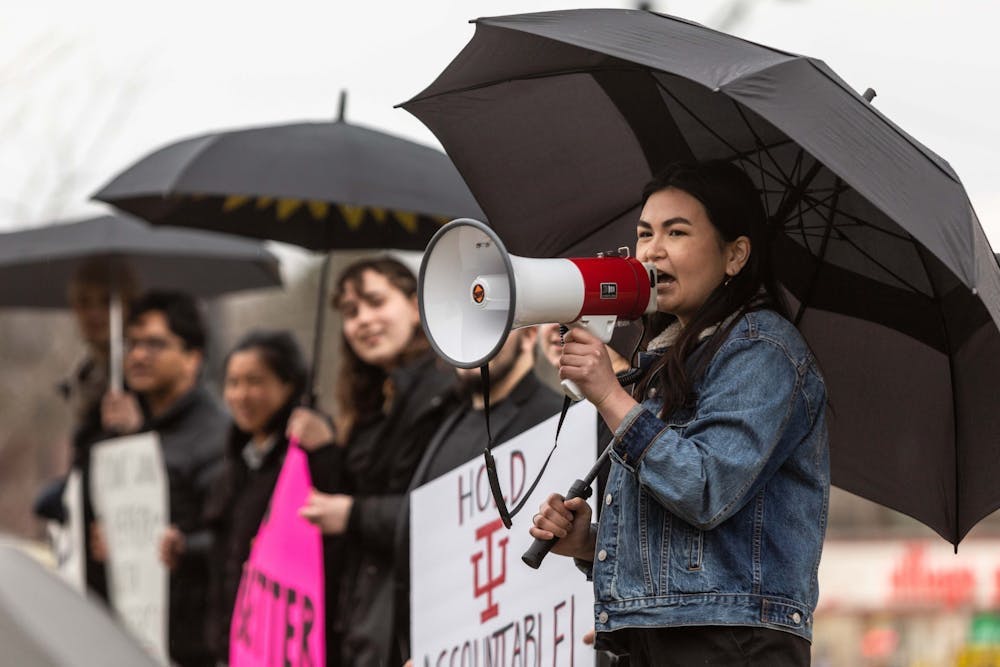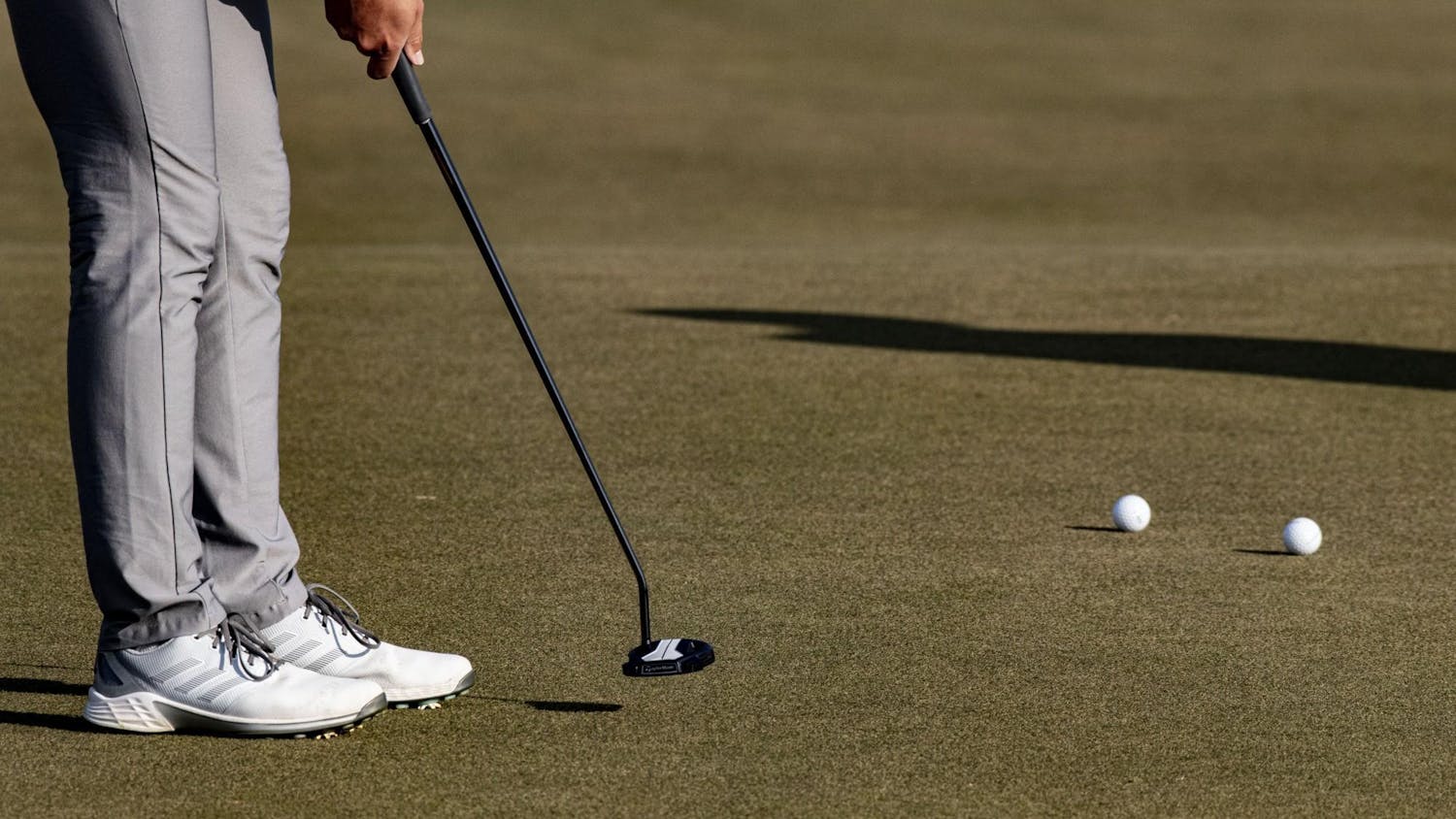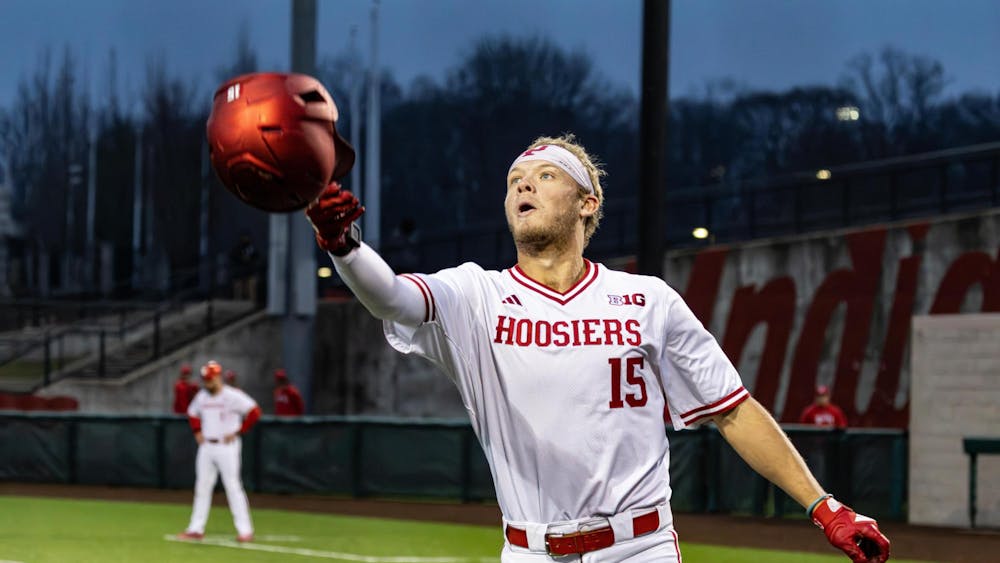Editor’s Note: This story includes mention of sexual violence. Resources are available here.
Throughout the fall 2021 semester, when much of the organizing against the Jacobs School of Music for its continued endorsement of Chris Parker was taking place, I was in an abusive relationship with a student pursuing a doctorate through the jazz studies department at Jacobs. He was one of the most vocal supporters of the cause. I trusted him.
We were introduced via another former jazz studies student who told me he was interested in helping us hold Jacobs and Parker accountable, specifically with circulating the open letter I’d drafted. We first met in August for the purpose of discussing the Parker case, and while the circumstances of our meeting should have stopped us from pursuing a relationship, it didn’t. It seemed so romantic at the time.
I told him about my sexual assault the day we first met, something I hardly talk about with friends I’ve known for years. I still don’t know what compelled me to do that. I quickly came to regret it. Men often react to a woman’s past experiences of violence by putting her through more violence. He learns that a man has had control over her before, and he wants the same.
One morning, a few weeks into our relationship, he suddenly launched into a tirade about a previous girlfriend. After several minutes of misogynistic comments and petty complaints, he told me she had called him abusive, indignantly professing that it made him feel like he was just some kind of terrible person. My heart was pounding. I told him what he wanted to hear to end the conversation. I was a victim too, but I still can’t shake the feeling that I did a horrible, hypocritical thing to her by not challenging his belief that he was the victim of unfair allegations.
Over the course of a few months, he crafted an entirely new reality around me in which it seemed I was the one constantly wronging him, and nothing I did ever seemed to earn his clemency. I was deeply unwell but couldn’t wrap my head around why. I chalked it up to having to constantly think about Jacobs and the sexual assault I experienced while a student there — something I was planning on publicly coming out about as part of the Parker investigation. The stress brought on by the investigation was the perfect cover for my abuser to continue hurting me.
By December, I was afraid of him, always bracing myself for the next time he’d get upset with me. We went on a trip together to celebrate New Year’s, where a stressful circumstance altered our plans. He berated me on the street outside a friend’s apartment. He barraged me with texts when I put some distance between us. The more he antagonized me, the more I retreated into myself, and when I tried to apologize, he berated me again. I spent much of the trip wandering the city by myself. I went shopping to buy him a nice pair of gloves. Maybe then he’d let up. I didn’t actually buy any. I didn’t want to see the look on his face when he inevitably didn’t like them.
On New Year’s Eve, I made a joke that offended him. We were lying in bed — I wonder if he could tell how vulnerable I felt while we were lying in bed. He yelled at me an inch away from my face, so close I couldn’t see his mouth moving. I just remember the smell of beer on his breath and the frantic look in his eyes. It’s my clearest memory of him. I’ve never felt so small. Not even when I was pinned under my rapist did I feel that small.
It ended the first week of January. He told me he didn’t trust himself to not hurt me, but in the same breath, hoped we could remain friends. I never wanted to see him again, but I felt trapped. The article was coming out in a few weeks. I was more miserable than ever. In spite of his cruelty and his lack of remorse for it, I was desperate for any support I could get. I couldn’t process what had happened on top of what was about to happen.
On my birthday, Jan. 22, he gaslighted me when I tried to confront him about everything he’d done to me. He cut all communication with me, telling me he couldn’t talk about the past anymore and that we shouldn’t speak until my emotions simmer down. I begged him not to abandon me in the most daunting moment of my life, and he did anyway. And then he was lauded for having done the right thing, after doing the cruelest thing he could have done to me, all while standing on the shoulders of the women and survivors who were the real heart and soul of this story.
On Jan. 27, the day the article ran, the truth had finally set in. I sent him one final message telling him I’d come to accept that our relationship was an abusive one and to never speak to me again.
I tried to confide in his friends. I was sure that their stance on the Parker case meant they would be interested in holding him accountable for his actions. At best, I was ignored. At worst, I was attacked. The most shocking of these came a week before the April protest, from a jazz studies alumnus who had been in a relationship with one of Parker’s victims.
He told me that my abuser had not abused me. He accused me of attempting to turn my abuser’s friends against him and insinuated that my sexual trauma clouded my judgment. I don’t know if my abuser asked him to silence me on his behalf, or if he took it upon himself as his patriarchal duty, but regardless, I never would have imagined these men I had put so much faith in would be so virulently misogynistic in private and still have the audacity to decry violence against women in public.
I was afraid that identifying him as an abuser might compromise the message about Parker – one abuser publicly condemning another might give Parker’s supporters reason to dismiss the issue as petty drama. I tried to suppress my feelings for the sake of organizing a protest alongside him until I broke down and told other protest organizers the truth. It was decided his continued presence would make the space unsafe, not just for me but for everyone involved, and from there on out he and his supporters were barred from organizing with us.
We held the protest on April 2, the beginning of Jazz History Month as well as Sexual Assault Awareness Month. There had been vague threats against Asian women graffitied on protest flyers. Of course, I felt I had to be the target of it. I might have been scared if I wasn’t anesthetized by the adrenaline and all the raw, unprocessed trauma of the previous months. I felt selfish for being so removed from myself at a time when I needed to be strong, but there was simply nothing left in me after that. The person I’d fought so hard to become in the years since I left Jacobs was gone.
The Parker story has shown us that the Jacobs community is completely incapable of holding its own accountable for the harm they’ve caused, because indicting its abusers points to an indictment of the entire culture. My abuser enjoys success in an environment that not only condones abuse but rewards it. I don’t find it a coincidence that some of Jacobs’ most prolific abusers are often some of its most celebrated students — the privileges that allow them to succeed are the same privileges that allow them to abuse those who don’t have that privilege and get away with it. They don’t even need to apologize or even acknowledge what’s happened, it’s as if they’re pre-forgiven for anything they might do.
In private, abusers can spread their own version of the truth, trusting their audience will never hear what their victims have to say. By speaking publicly, we force the communities that protect and enable abusers to confront the truth, we protect others from future harm and we encourage other victims to speak their truth as well.
Our silence benefits our abusers, and I cannot allow any part of myself to be used for this man’s benefit any longer.
A list of resources is available here if you or someone you know has experienced sexual harassment or abuse.
Abby Malala (she/her) is a writer and filmmaker living in Chicago.






